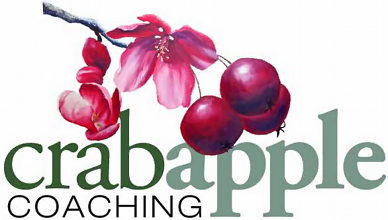 Thoughts from a Retirement Coach
Thoughts from a Retirement Coach
By Mariella Vigneux, MBA, ACC
Certified Professional Coach
When you meet someone new, do you pay attention to what you tell them about yourself? It is in these conversations that we create images about our identity. We select stories and events from our past to shape people’s views of us.
Are we telling them that we’re happy? Successful? Busy, busy, busy? Are we telling them where we live, what we do for a living, how many kids we have?
How do you define yourself? For those who have retired, has the way you define yourself changed?
Stories from Newfoundland
I recently spent a month driving around Newfoundland with my partner, my sister, and my brother-in-law. We stood out from the local residents: we talked differently, we had a canoe on the car in the icy month of May, and our car had an Ontario licence plate. So, people struck up conversations with us. “Where you from,” they’d ask. “We’re from Ontario,” we’d say. “Not Toronto,” we’d be quick to add. “We live a couple of hours outside of Toronto.” We were anticipating an aversion to Toronto-centric Ontarians. We were trying to identify ourselves as okay people, even though, to them, we are westerners. (Sorry, Torontonians. I know you are okay people too.)
Then the Newfoundlanders would tell us a bit about themselves, defining themselves through their stories, interests, and way of interacting.
We met Bruce in Deer Lake. He came to return our lost cell phone. Bruce seemed to be a helper, and not only for us. He told of giving his employee extra money to help her out, as her husband was near death. Bruce was absolutely passionate about motorcycles, showing us his 800-lb. machine with great pride. He wanted us to visit the place of his ancestors. He was a person who had worked in numerous types of work. Bruce was an enthusiast.
The commercial fisherman we met in La Scie loved people. He was once a tour guide by profession, always a lover of conversation, a seeker of information, a tour guide in life.
We talked with a waitress in a fish processing town. Even though she seemed unclear about the shrimp quota cutback, and about who she felt was in the right and who was in the wrong, she was very clear in telling us that the world is an unjust place.
Wayne, who kept popping up to entertain us in different villages, was a consummate storyteller, bringing humour to all conversations. His tales were of hardship as a youth, his tale-telling full of contagious laughter.
Raymond, the Bed and Breakfast operator, wanted to please. He stayed up until 2:30 in the morning learning how to bake brioche for us, because we said we liked it. His passion was old cars; he loved fixing them up and eventually selling them (usually at a loss).
What do we say?
I can’t remember saying much about myself to the people we met, and what I did say would have given them a very sketchy view of who I am.
Should I have told them all about the things I love? I could have said that I love where I live, where I hear only the sound of wind in the trees, where the air is filled with the fragrance of white peonies and lilacs. In winter, the snow is up to my knees. I can ski from my front doorstep. I have 120-year-old maple trees standing as sentinels around my house. Colourful birds come to my birdfeeders all year, and I see bird nests fill and empty each spring. My work allows me to sit with people to hear about their hopes and dreams, their struggles, and fears. My life is full of people I love. I have nine siblings all of whom love each other. And I have a huge, laughing, extended family. I’m looking forward to creating a book. My two cats are extremely affectionate. Etcetera.
Should I have told them I sometimes worry about money? That I often doubt myself? That I strive too much?
They would have received a clearer impression of who I am. But do new acquaintances want to hear about my worries and doubts? Probably not. Do they want to hear about what I love, or would they consider it boastful? Might it even create envy?
What’s the point?
If the purpose of meeting new people is to forge a connection, we want what we say about ourselves to be as accurate as possible. We’re looking for commonalities, for ways to create a bond: Do we know the same people? Do we share a passion? Have we visited the same places? Do we have the same values? It’s a conversational dance, one that requires us to speak honestly and to listen intently.
I guess that is why it is important to listen to how we define ourselves. Do we like what we’re hearing? What are we leaving out, and why? Are our stories old, outdated, no longer relevant? Could we tell stories that are closer to what makes us tick, closer to what’s important to us now? Heck, if we can’t focus on what’s important to us at this age, when will we? And what if we were to focus more on hopes, on what’s new, and on where we’re headed, instead of on where we’ve been and the troubles we’ve had.
A tinker? A tailor?
It’s difficult to make strong personal connections unless we know ourselves. Who are you – really? Perhaps you are a person who mends things. Saves things. A problem-solver. An appreciator of beauty. A creator of beauty. A survivor. An adventurer. Maybe you are a people-broker. Or a warrior for the downtrodden. One who loves and is loved. One who questions. One who takes care of people. Or maybe you are a dreamer, an organizer of chaos, a seeker, a striver, or a builder. Maybe you are all of these things.
And perhaps the profound question is not “Who do you SAY you are” or even “Who are you?”
Maybe it is “Are you who you want to be?” But that’s a whole different question!
